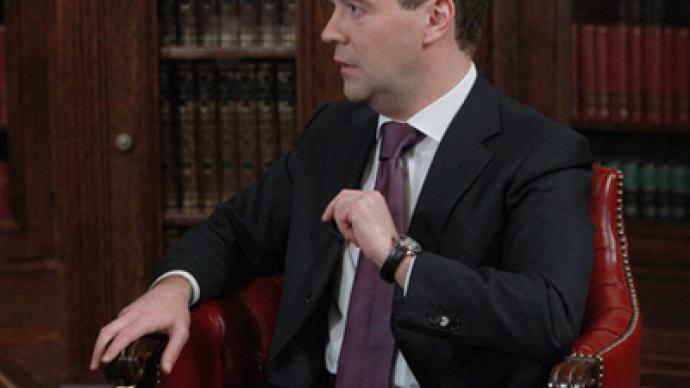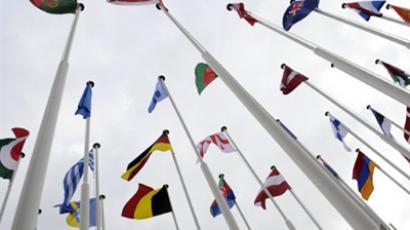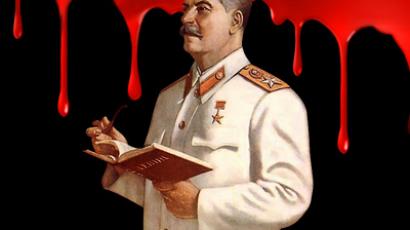Agreement on Russia-NATO missile shield would be “breakthrough” – Medvedev

The future of ties between Moscow and the alliance depends on the political will of both sides, President Dmitry Medvedev has said.
In an interview to Polish media published on Monday ahead of his visit to Warsaw, he spoke about the future of Moscow’s relations with Poland and the West. Russia, NATO can have “good-hearted” relations The future of ties between Moscow and the alliance is “in our own hands,” Medvedev said. The recent Lisbon summit could be historic, but it could also “turn out to be a meeting that did not live up to expectations.” According to Medvedev, resetting ties with NATO and the US has been successful, and the co-operation is developing in many fields. One of the most important issues that can unite both sides is the missile defense system in Europe. This will be “either a joint Russia-NATO initiative,” or in case Russia fails to find its place in the system, it would destabilize “nuclear equilibrium” and weaken Russia’s capabilities by 2020, Medvedev noted. The second course may cause “another cycle of the arms race,” he warned. Russia’s idea voiced at the Lisbon summit is the “sectoral responsibility” of states involved in the missile defense project in Europe. If the agreement on the defense shield is reached it would be “a breakthrough” in relations, Medvedev said. NATO’s new strategic concept adopted in Lisbon states that the alliance does not threaten Russia. Medvedev described the move as “a shift in the paradigm of our relations.” Changing public opinion in Russia and PolandThe Russian president has not visited Poland for a long time, Medvedev said. According to him, the visit that begins today may transform quantitative, “small but important changes” in the bilateral relations into qualitative ones.Moscow is interested in improving Russia-Poland relations, Medvedev said. The ties have “a rather complicated history” that binds the two peoples, he noted. The task is to leave behind this trite historical paradigm and “try to separate history” from today’s life. One of the most acute in Russia-Poland relations is the assessment of Katyn case – the killing of thousands of Polish nationals by Stalin’s secret police in 1940. “Our task in the Russian Federation is to tell the truth about it,” Medvedev said. He described the recent State Duma’s statement condemning the Stalin regime’s crime as a sign that reflects “the changes in public opinion.” However, the public opinion in Poland “should also change and the new vision of the new Russia should appear,” he stressed. If there are goodwill and confidence from both sides, the future of the relations can “really change.”Medvedev said he “will never forget the minutes” when he learned about the Polish president plane’s crash near Smolensk on 10 April. “The plane crashed in a place of sorrow,” the president said. Russia mourned with the Polish people and leadership, he added. According to Medvedev, Moscow also showed at once that it was ready to fully co-operate in the investigation of the circumstances of the tragedy. Democracy and economy depend on each other Speaking on Russia’s political situation, Medvedev said that democracy was closely connected with the economic situation. At the same time, a modern economy should be supported by a modern political mechanism “ensuring, and securing, the fundamental rights and freedoms.” “Democracy cannot be built in a poor state,” Medvedev said. Bbut he added that “it is impossible to create a modern developed economy in conditions of dictatorship.” The country cannot reform the economy “without changes in the political system,” he stressed. In part, it is explained by the fact that many Russians identify themselves with “values which came to us from Europe.” Russia is not the only country which faces challenges in building a modern rule of law state, Medvedev said. He added that the rule of law is impossible “unless the law has its foundation in government.” According to him, “a weak state means a weak system of law.” Preserving continuity of power and policyAsked if he intends to pursue a second presidential term, Medvedev said he did not “exclude this possibility.” However, it is possible, the president said, if the situation is normal and stable and if he enjoys an appropriate support from people.Any such announcement should be done “at an appropriate time.” Medvedev said. “Some of his colleagues” could also take part in this political process, he noted. According to the president, the most important thing is to preserve in any circumstances the continuity of power and policy. “As for me, I do not naturally exclude such a job – it is a normal thing for any politician.”














